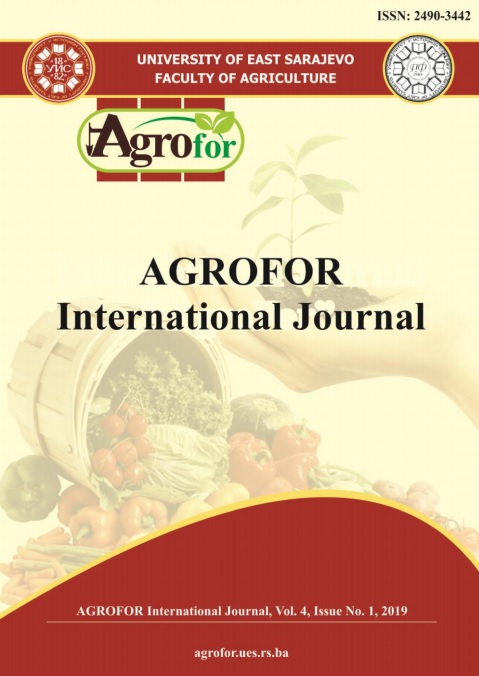NEW ROLE OF AGRICULTURAL EXTENSION AND ADVISORY SERVICES BASED ON CURRENT FINDINGS AND FURTHER COLLABORATION FOR IMPROVED NUTRITION
DOI:
https://doi.org/10.7251/AGRENG1901137MAbstract
Nowadays, there are a number of projects tackling on challenges around which this
study is based. For instance, the ultimate goal of the current project SKIN is to
create a permanent stakeholders’ association on short food supply chain (SFSC)
that works on the joint economic growth of the agricultural sector through the
exchange of local food practices and through coaching sessions stimulating
innovation. It creates a European network of best practices in SFSC that addresses
the fragmentation of knowledge in the agricultural sector and supports bottom-up
innovation initiatives. No doubts, boosting innovation through that project in local
areas will lead to economic growth in the regions. But, for its sustainable
development, it is crucial to create the agricultural extension and advisory services
(AEAS), particularly in EU countries and also to modify their role using bottom-up
approaches. Despite the fact that the role of AEAS in the EU countries is
transforming in the last few years, from a technology transfer paradigm to a
demand-driven model, there are still two challenges that should be tackled in the
global agenda: 1) facilitate linking of local agricultural sector and nutrition; 2)
build a sustainable network of advisors in the EU for improving knowledge flows
in national and regional agricultural knowledge and innovation systems (AKIS).
According also to the findings of the SKIN project and to our recently developed
concept (FENIX), the launch of new initiatives will enable AEAS by gathering of a
large amount of information and knowledge from local areas and population,
helping all types of stakeholders to improve health, environmental, and economic
sectors in targeted regions.

